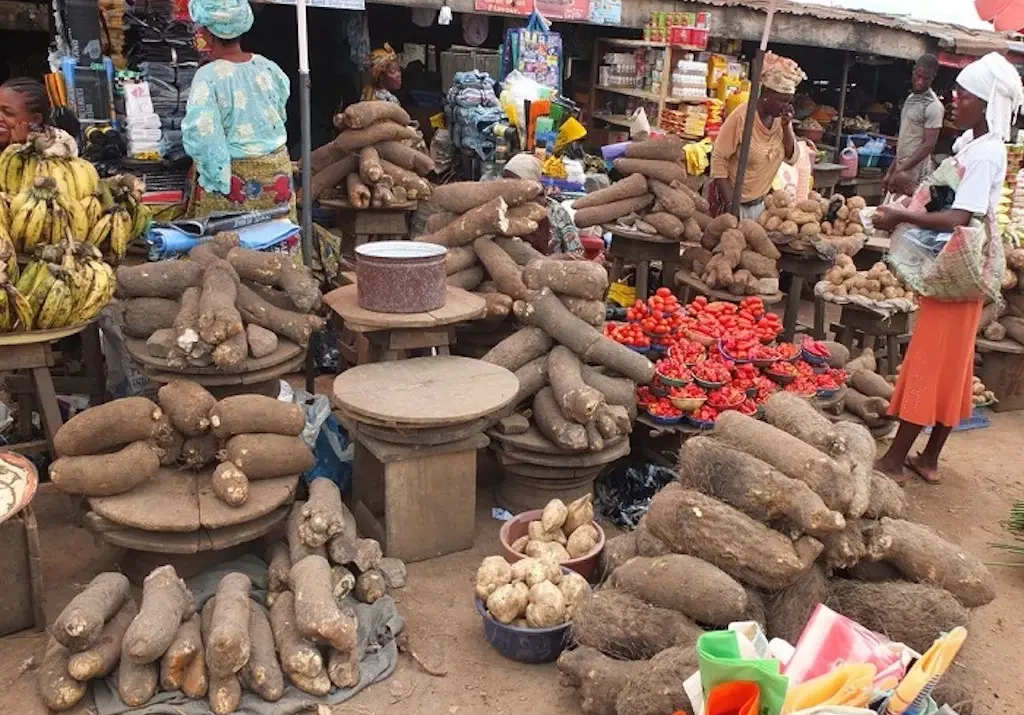The Permanent Secretary, Ministry of Agriculture and Food Security, Mr Temitope Fashedemi, says the Federal Government has put machinery in place to address challenges of food and nutrition insecurity.
Fashedemi spoke at the presentation of the March 2024 round of Cadre Harmonisé analysis national consolidation report on Friday in Abuja.
The Cadre Harmonisé(CH) is a Food and Nutrition Insecurity Analysis by the Ministry of Agriculture and Food Security in collaboration with technical partners including the UN Food and Agriculture Organisation (FAO).
Fashedemi, who was represented by the Director of Special duties, Adedayo Modupe, said the results of the cycle of CH analysis came at a time when government was leaving no stone unturned in reinvigorating the nation’s economy.
The permanent secretary said the removal of petroleum subsidy had further heightened pressure, resulting in food inflation and increase in consumer price index’
He assured of the ministry’s commitments to upholding and utilising the outcome and recommendations proffered at the workshop for the implementation of food and nutrition security interventions.
The Cadre Harmonisé report indicated that no fewer than 31.5 million people including 83,846 Internally Displaced Persons (IDPs) in 26 states and the FCT were expected to be in crisis between June and August 2024.
According to the report, no fewer than 24.7 million people including 14,000 IDPs in 26 states and the FCT are in food crisis between March and May 2024.
The report revealed that about 1.1 million people in Adamawa were expected to be in crisis or worse between June and August 2024, and about 2.1 million people in Borno were expected to be in crisis or worse between June and August.
“Also, 1.5 million people in Yobe are expected to be in crisis or worse between June and August this year.
“During the current period, food consumption was under stress in most of the states and Crisis in some LGAs in Adamawa, Borno, Katsina, and Yobe, Zamfara States.
“Deteriorated food consumption situation was also observed among populations in the inaccessible areas and the IDPs in Adanawa, Borno, Sokoto, and Zamfara States.
“During the projected period (June to August 2024) more households are expected to face crisis level of food consumption in the states.”
It said that the deteriorating food consumption resulted from a significant spike in food prices due to high production and transportation costs caused by the removal of fuel subsidies and its resultant impact on inflation and consumer price index rates on both food and basic non-food items.
The report said that in all the states analysed, livelihood evolution was either under stress or crisis.
“The consequences of insecurity have led to the loss of livelihoods in Adamawa, Benue, Borno, Katsina, Niger, Plateau, Sokoto, Zamfara, and Yobe states.
“Poor macroeconomic conditions are restricting access to agricultural inputs in the country; the high cost of transport, inflation rate, and the volatile dollar-naira exchange rate have negatively affected households’ income.
“In the projected period (June to August 2024), poor microeconomic conditions and conflicts are expected to drive limited access to livelihood opportunities.
“The nutrition situation in the Borno, Adamawa and Yobe and northwest states of Katsina, Sokoto, and Zamfara revealed the prevalence of malnutrition for Under-5 children to be in crisis in the current situation,” the report said.
The report said key drivers of the crisis included conflict and insecurity, fuel scarcity, naira devaluation currency crisis, and rising inflation and Consumer Price Index (CPI) rates.
In his remarks at the presentation, the Country Representative of the FAO to Nigeria and ECOWAS, Mr Koffy Dominique, said the main goal of the CH workshops was to analyse available food security data.
Dominique, who was represented by the Deputy FAO Country Representative, Suleiman Abubakar, said the CH analysis produced the most reliable and widely acceptable data/results for humanitarian programming and food security.
He said the FAO would continue to support the CH process, both in terms of funding as well as technical support and capacity building across the country.





